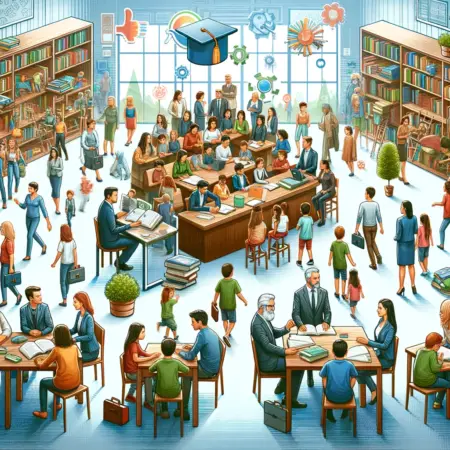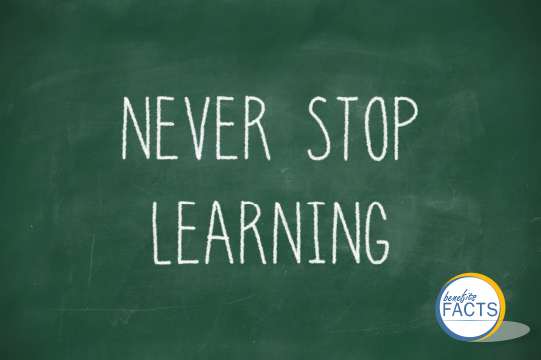Education is a social process, because it cannot be limited to some books and speeches.Education contain all about life experince.The concept of human civilisation is highly complex and does not lend itself to a precise definition. Nevertheless, it will be readily conceded that one of its essential elements is man’s constant endeavour for broadening his outlook and interest. Biologically, man is a self-centred creature, anxious for the fulfilment of his physical needs like thirst hunger, rest, mating and procreation, etc.

But since man is rational animal, his reason teaches him not to give a free play to his animal instincts. Consequently, man has been endeavouring, through ages, to sublimate his primitive instincts and learn to living organised society and appreciate his rights and duties therein.
Society is a very elastic term and its conception has been broadening from time to time. Society can comprise a handful of persons as well as millions of being. He mixed with other cavemen and out of sheer necessity, in the beginning, realised convenience of hunting for food in company. Slowly man formed small groups with certain common features, requirements and interests.lt is thus that the idea, of tribal groups sprang up. Members of a particular tribe struck together .Tribal loyalties struck deep roots and the members of a tribe took pride in working for its well-being and undergoing all manner of hardships and sacrifices for its sake.
What Everyone Must Know About Education Is A Social Process
As education and enlightenment spread and life came to be more complex the nation of tribal life began to appear as primitive and irrational. Man realised the necessity of having a wider conception of society.Gradually, therefore, the idea of nationalism as opposed to tribalism and feudalism, took birth. All this happened towards the end of the Middle Ages in Europe, and by the beginning of the 16th century, nationalism became the accepted creed in every country and powerful nation-states came into being.
All peace-loving and thoughtful persons are therefore, fully convinced that nationalism has been weighed and found wanting. Nationalism is not enough; it creates a narrow and selfish outlook and leads to war. Blind allegiance to the interests of one’s nation and country regardless of the interests of other people, is an ideology fraught with the most woeful consequences. Excessive attachment to one’s nation creates unjustifiable prejudices, distrust and fear against Mother nations. A German forgets in his patriotic fervour that a Frenchman or a Russian is as much God’s creature as he is and has equal right for a place under the sun. Again an American has no right to indulge in self-complacency and look upon a Russian, as a savage or a devil.
Nations consist of human beings who are neither purely angelic nor thoroughly demoniacal. One nation has to tolerate and respect other nations. Nationalism should not run counter to The need of an orientation of outlook cannot, therefore, be overemphasis. Throughout the nineteenth century, the individual in every country was fed on pure nationalistic sentiments. Thus the entire social, economic, and political outlook was governed by narrow nationalistic considerations. But now the interests of mankind demands a different sort of education. If man wants to live and preserve human civilization and culture, he has to learn to respect all his fellow beings, no matter to which nation or country they belong. Mutual respect and consideration should replace narrow nationalistic prejudices and rivalries.
It is true that there are many continents and many countries in the world. There are many races and nations and their languages, cultures, customs and manner, social and religious outlook are different. Geographical, climatic and other factors have produced great diversity among the various Peoples. Yet underlying this diversity there is an essential unity. All the nations irrespective of race, language, religion and other barriers, are God’s children, basically human beings—with common emotions and sentiments, needs and interests.
It is an admitted fact that modern science, besides inventing terrible engines of destruction, has almost conquered time as: distance and the globe seems to have shrunk in size. Aerial fly’ wireless services, fast-moving gigantic ships, electric trains and scores of other gadgets of science have knitted the people of. the world and brought them closer. Even in peace times, the developments in one part of the world affect the other parts intimately. Trade and Industry, economic and political developments are planned on a worldwide basis. Hence, it is both unreal and impracticable to live in one’s try in proud and barren isolation.
There can indeed be no two opinions about the need and desirability of cultivating a cosmopolitan outlook. How this aim can be reached is not very easy. Education in schools and colleges continues largely to be governed by nationalist considerations. School-going children are taught to sing in chorus patriotic songs and tunes in praise of the greatness, real or imaginary, of their country and people. All this has to be changed radically from the very beginning of a child’s education for childhood is the most impressionable period of one’s life.
Proof That Education Is A Social Process Really Works
The truth of this observation will be best appreciated if it is borne in mind that education is not synonymous with going to school or college alone. In other words, education does not and should not stop once and individual has attained academic degrees and comes out of the portals of a school or university. Education is the process of changing human character for the better. This process of building up character, of forming correct and balanced views; of training and sublimation one’s’’, instincts and passions, cannot be concluded in an educational institution alone. It is a life-long process and real character building often takes place after a person leaves his schooling and plunges into the rough and tumble of life. Education is, therefore, a continuous process from the cradle to the grave. It is from this point of view that the problem of educating man to live as a citizen of the world has to be tackled. The responsibility of this sort of education and training lies, in the complex world of to-day, as much on the state as on the individual.
Education in world citizenship is an uphill task. It requires imagination, initiative, resources. Above all, it needs peace and prolonged persevering effort on the part of every man and woman. To hope for success and tangible results in the course of a few years is to live in a world of moonshine. Progress in this direction will be slow and difficult for the odds are heavy. Yet the ideal is worth striving for since, in case otherwise, mankind cannot be rid of the evil of suspicion, jealousy, and fear, which eventually precipitate fighting and bloodshed. Peace is the crying need of people today and this blessing cannot be enjoyed unless we come to know one another and learn to respect one another’s sentiments and interests.
Creating a tabular guide to illustrate how education is a social process in our lives involves organizing information in a structured format. Here’s a concept for such a table:
Table Title: “The Role of Education as a Social Process in Our Lives”
| Age Group | Educational Phase | Social Processes Involved | Key Outcomes |
|---|---|---|---|
| 0-5 years | Early Childhood Education | Socialization, Learning Basic Norms | Foundation for communication, basic etiquette |
| 6-12 years | Primary Education | Peer Interaction, Teamwork, Understanding Society | Development of social skills, basic academic knowledge |
| 13-18 years | Secondary Education | Peer Groups, Extracurricular Activities, Awareness of Social Issues | Identity formation, critical thinking, career orientation |
| 18-22+ years | Higher Education | Networking, Collaboration, Exposure to Diverse Perspectives | Professional skills, societal awareness, personal growth |
| Adult Education | Lifelong Learning | Continuous Education, Professional Development | Adaptation to societal changes, ongoing skill development |
Note: This table is a simplified representation. Education processes and outcomes can vary significantly based on cultural, economic, and individual factors.
This table provides a basic framework, and you can expand it or adjust it based on specific educational theories or social processes you wish to highlight.
Conclusion
Education is undeniably a social process that goes beyond the mere acquisition of knowledge. It fosters socialization, promotes diversity and inclusion, inspires critical thinking, encourages civic engagement, and enhances economic opportunities. As individuals, we have a responsibility to actively participate in this social process, both as lifelong learners and as contributors to the betterment of our society. By recognizing the significance of education as a social process, we can collectively build a more equitable, inclusive, and prosperous world.
